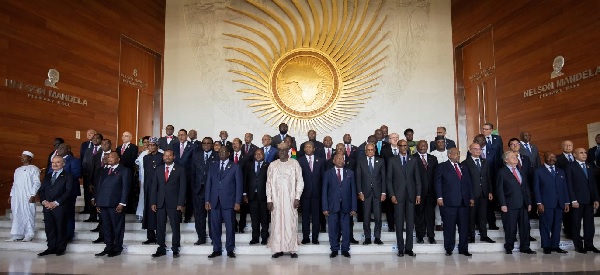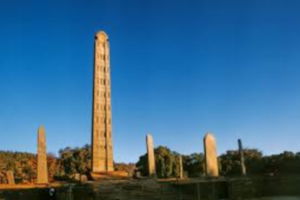
BY EYUEL KIFLU
After two years of tumultuous years accompanied by barrages of defamatory yet false information in relation to the conflict in northern part of Ethiopia, the country peacefully and successfully hosted the 36th Ordinary Session of the African Union (AU) Heads of State and 42nd Ordinary Session of the Executive Council. In sharp contradiction to the disinformation campaign that tarnished the reputation of the country, Addis Ababa staged Africa’s high-profile and biggest summit with a long list of guests in attendance.
The security and safety joint task force of Ethiopia announced on its social media page that the session was completed without any security glitches. The joint task force collaborated with Ethiopian Airlines and African Union administrative leaders to keep the delegates safe, and it also worked with the Foreign Ministry of Ethiopia.
Ethiopia hosted this grand gathering successfully according warm receptions and Ethiopia’s peculiar hospitality culture to the guests. At least, this was what the words participants revealed. Above all, the country also sent a clear message to the world that it still remains Africa’s undisputed and preferable political, economic and diplomatic hub and powerhouse.
The summit was attended by the AU head of member states, UN Secretary-General, different delegates from US, EU, UAE and other countries. Also in attendance were representatives from international and multilateral organizations. According to the Ministry of Foreign Affairs, over 1000 journalists including over 300 local journalists took part in the mammoth meeting.
Strong cooperation among service providers like transportation, hotels, security and others was ascribable to the success. The summit has had far reaching impact in the country in terms of turbocharging the economic, tourism activities of the country. The summit was in fact watershed movement for the country with the Pretoria Peace deal, green legacy initiative and other ambitions of the country reverberated in the gathering.
In a press briefing issued lately, Ministry of Foreign Affairs (MoFA) disclosed that the summit was about the transition of Ethiopia from war diplomacy to peace building diplomacy. More of the last two years of diplomacy movement was about keeping the sovereignty of the country and standing for the truth. Also, in this summit, 20 heads of state, and representatives of international organizations held discussions with Prime Minister Abiy Ahmed on ways of cementing bilateral relations. Similarly, Deputy Prime Minister Demeke Mekonen conferred with representatives from over 20 countries and international organizations in different areas of cooperation.
The summit was an opportunity to identify the country’s current peace and development situation, the ministry noted. Ethiopia was praised for its contribution to Africa with the Pretoria peace agreement and the country reaffirmed that the implementation of the peace deal is going smoothly in line with the Nairobi declaration.
The current country’s peace situation brings different national development and improves its acceptance in the international diplomatic sphere. Also, the Ethiopian government efforts to end the two year conflict have received recognition from the administrators of the AU and all AU member states. International organizations also pledged financial support to the country’s development.
Most importantly, the country seized the summit as opportunity to push for pan Africanist agendas that were also echoed by the heads of states of African nations and UN officials. Africa’s quest for a permanent seat in the United Nations and the issue of establishing continental media and compensating for climate change impacts were among the top topics in which Ethiopia pushed for. These issues were well received by other African leaders and UN representatives.
Addressing the AU Summit lately, Prime Minister Abiy Ahmed said that Africa’s voice on the world stage needs to be heard loud and clear. Africa must also be represented on important international bodies. Today, more than seven decades after the creation of the United Nations, Africa remains a junior partner without meaningful input or role in the system of international governance. This is particularly true of the United Nations where Africa lacks representation on the Security Council and is underrepresented in a variety of ways.
It is the right time to reform and revitalize the United Nations system to reflect current global realities and ensure that it is a more representative and equitable body. Only fair representation and transparency in those institutions can usher in a just era of multilateralism. “Consistent with our Ezulwini Consensus of 2005, we should collectively insist that Africa’s reasonable request for no less than two permanent seats and five non-permanent seats in the UN Security Council be adopted.”
Equally important is Africa’s media representation on the international stage. Africa is often portrayed in the international media negatively. The endless representation as a continent troubled by civil wars, hunger, corruption, greed, disease and poverty is demeaning and dehumanizing and likely driven by a calculated strategy and agenda.
The stereotypical and negative media representations of Africa not only misinform the rest of the world about our continent, but it also shapes the way we see ourselves as Africans. Telling our own stories and shaping our own narratives must be our top priority. “In this regard, I would like to propose to this august body the establishment of an African Union Continental Media House.”
In this summit, AU passed a strong decision on the challenges of coups, conflict and climate change in the two-day-long summit. Speaking at the event, Moussa Faki Mahamat, AU Commission Chairperson, said that the unconstitutional change of government is not acceptable, and we need to find means to discourage that.
“So we are mindful and lay sanctions. We understand that economic sanctions affect the social cohesion of these countries. Thus, the population does not suffer, said and brief the importance of the sanction in the coup-oriented military leadership such as Burkina Faso, Guinea, Mali and Sudan. The commission has expressed its readiness for those countries to return to constitutionalism and democratic elections.” Moreover, International Metrology Sub continental Meeting, Africa CDC Ministerial Executive Leadership Program and other meetings were held in the country on the side-line of the AU Summit.
To make a strong decision, AU must generate its own income rather than depend on any donors. This helps implement AU’s decision without any other actors interfering. To fully implement that AU sanction on the countries with coup-oriented military leadership, needed the union’s commitment and financial independence, pan-Africanist Kalleab Belachew told The Ethiopian Herald.
Inter-country free movement is important to the continent’s development, so the creation of an African Free Trade Area (AfCFTA) plays an indispensable role in the continent’s development. When this agreement is fully implemented it expected the African inter-trade exchange from 15 to 60 percent in 2034. Speaking at the event, the Comoros president and AU chairperson, Azali Assoumani, the leaders had agreed to accelerate the implementation of a faltering trade deal launched in 2020.
The AfCFTA agreement is expected to create the largest free trade area in the world, measured by the number of countries participating. So, 40 countries have signed the agreement and eight have implemented it.
The Ethiopian Herald Feburary28/2023





